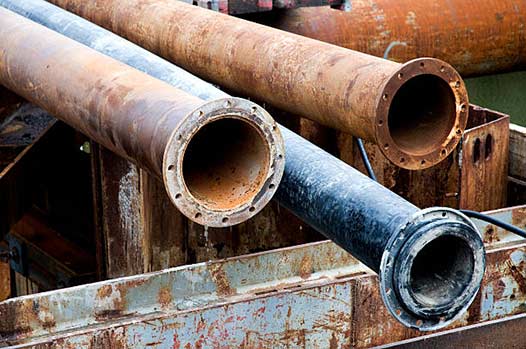
Lead water lines have been a topic of concern for homeowners in cities across the United States, including Chicago. The presence of lead in drinking water poses significant health risks, especially for young children and pregnant women. Here we will provide homeowners in Chicago with everything they need to know about lead water lines, including the potential health hazards, how to identify if their home has lead pipes, and what steps they can take to mitigate the risks.
The Dangers of Lead in Drinking Water
Lead is a toxic metal that can cause serious health problems when it enters our bodies. When ingested, lead can accumulate in the bloodstream and various organs, causing damage to the nervous system, kidneys, and reproductive system. The most vulnerable populations to lead exposure are young children and pregnant women.
Lead exposure in children can lead to developmental delays, learning disabilities, and reduced IQ. Pregnant women who are exposed to lead may experience complications such as premature birth, low birth weight, and developmental issues in their unborn babies.
It is crucial for homeowners to understand the risks associated with lead in drinking water and take appropriate measures to protect themselves and their families.
Identifying Lead Water Lines
If you are a homeowner in Chicago, it is important to determine if your home has lead water lines. While not all homes in Chicago have lead pipes, it is common in older properties, especially those built before the 1980s.
Here are some indicators that may suggest the presence of lead water lines:
- Age of the Property: Homes built before 1986 are more likely to have lead pipes.
- Pipe Color: Lead pipes are usually a dull gray color and may appear soft and scratched.
- Sudden Drops in Water Pressure: Lead pipes are prone to corrosion, which can cause a decrease in water pressure.
- Lead Testing: The most accurate way to determine if your home has lead water lines is to conduct a test. You can contact a certified laboratory or hire a professional plumber to perform the test.

It is important to note that testing should be done at the point of use, such as faucets used for drinking and cooking.
The Importance of Testing
Testing for lead in drinking water is essential to determine the level of contamination and take appropriate actions to protect your health. While the city of Chicago has taken measures to reduce lead levels in drinking water, it is still recommended for homeowners to conduct regular tests, especially if they live in older properties.
It is important to note that testing should be done at the point of use, such as faucets used for drinking and cooking. This is because lead can leach into the water as it passes through the pipes and fixtures.
Various testing methods are available, including DIY test kits and professional laboratory analysis. DIY test kits are often affordable and easy to use, providing homeowners with a quick indication of the lead levels in their water.
Steps to Take if You Have Lead Water Lines
If you have identified that your home has lead water lines, there are several steps you can take to minimize your exposure to lead:
- Flush the Pipes: Before using water for drinking or cooking, it is recommended to flush the pipes by running the cold water tap for at least two minutes. This can help reduce the concentration of lead or other contaminants that may have accumulated overnight.
- Use Cold Water for Cooking and Drinking: Hot water is more likely to contain higher levels of lead, so it is advisable to use cold water for cooking and drinking purposes.
- Consider Installing a Water Filter: Installing a certified water filter can be an effective way to reduce lead levels in your drinking water. Look for filters specifically designed to remove lead, and make sure to follow the manufacturer’s instructions for installation and replacement.
- Replace Lead Water Lines: For a long-term solution, consider replacing the water lines in your home with safer alternatives, such as copper or plastic pipes. This can be a complex task that requires professional assistance, so it is important to consult with a licensed plumber.
Resources Available for Homeowners
If you are a homeowner in Chicago concerned about lead water lines, there are resources available to assist you:
- Chicago Department of Water Management: The Chicago Department of Water Management provides information and resources regarding lead in drinking water. They can be reached at (312) 744-7001.
- Illinois Environmental Protection Agency (IEPA): The IEPA offers guidance on lead in drinking water and can provide information on water testing laboratories. They can be contacted at (217) 782-3397.
- Chicago Plumbing Experts: Reach out to our Chicago plumbers who specialize in lead water line replacement. They can assess your home’s plumbing system and provide professional advice on the best course of action.
In Conclusion
Lead water lines pose a significant health risk and it is crucial for homeowners in Chicago to be aware of the potential dangers and take necessary steps to protect themselves and their families. Identifying lead water lines, conducting regular testing, and implementing mitigation measures such as flushing pipes and installing water filters can help reduce exposure to lead. For a long-term solution, considering the replacement of lead pipes with safer alternatives is recommended. By being proactive and informed, homeowners can ensure the safety and well-being of their household.
—